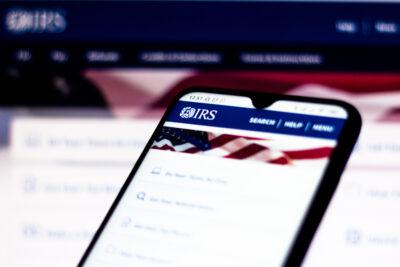IRS Summons of Coinbase Undermines Privacy, Discourages Innovation
The IRS is expected to respond to a recent Congressional inquiry into its summoning records from Coinbase, a San Francisco-based digital currency intermediary, by June 7. The inquiry, sent by House Ways and Means Committee Chairman Kevin Brady (R-TX), Senate Finance Committee Chairman Orrin G. Hatch (R-UT), and House Ways and Means Oversight Subcommittee Chairman Vern Buchanan (R-FL) on May 17, expressed concerns that the IRS “summons seems overly broad, extremely burdensome, and highly intrusive to a large population of individuals.” The Chairs’ concerns are warranted: the IRS summons undermines financial privacy and discourages innovation in digital payments technology for little gain to American taxpayers.
The summons in question was delivered to Coinbase last December. It is a John Doe summons, which means that the IRS has not identified a specific person suspected of misreporting income. Rather, it has identified a class of individuals—namely, all Coinbase users—some of whom they suspect might have misreported income. Coinbase has refused to provide any records under the summons to date. The matter has been held up in court for months.
The scope of the IRS summons is astonishing. Basically, the IRS wants any and all information that Coinbase has so that it can sift through that information for the slightest hint of misreporting. It has requested account registration information for all Coinbase account holders, including confirmed devices and payment methods; any agreements or instructions that grant third party access or control for any account; records of all payments processed by Coinbase for merchants; and all correspondence between Coinbase and its users regarding accounts. As the Chairs’ inquiry acknowledges, the summons is anything but targeted and specific.
Whereas the scope of the summons is enormous, the evidence on which it is based is quite scant. The IRS claims that, since (1) fewer than one thousand individuals reported transactions on Form 8949 with a property description likely related to bitcoin in each of the years 2013, 2014, and 2015 and (2) Coinbase boasts 5.9 million customers over the period, some of those customers are likely failing to report Bitcoin-related income. That’s it. That’s the so-called smoking gun.
One might wonder how the IRS could issue such a summons without anything resembling probable cause. The short answer is that the IRS is not required to have probable cause. It needs only to demonstrate a “reasonable basis.” And the courts have generally supported IRS efforts to secure records, even going so far as to require individuals provide potentially self-incriminating records despite fifth amendment concerns.
Did some Coinbase users misreport income between 2013 and 2015? Almost certainly. The complexity of the tax code means that any random selection of 5.9 million taxpayers is likely to turn up some misreporting. And the reporting requirements for bitcoin users were especially unclear over the period. The IRS did not offer any guidance on how cryptocurrencies would be treated for tax purposes prior to March 2014. And, as late September 2016, the Treasury Inspector General for Tax Administration acknowledged the need to “develop a coordinated virtual currency strategy” and “provide updated guidance to reflect the necessary documentation requirements and tax treatments needed for the various uses of virtual currencies.”
Given the scope of the summons and uncertainty regarding reporting requirements, it would be truly incredible if an IRS investigation were not to reveal evidence that some bitcoin-related income had been misreported over the period. The question is whether detecting those errors is worth the monumental invasion of financial privacy that the IRS is seeking and the residual consequences from discouraging innovation in secure digital payments technology. That seems unlikely. As the Chairs’ note, some 90 percent of Coinbase customers “engaged in less than $10,000 in cumulative, gross transactions during the entire period requested.” As such, the potential gains to the American taxpayer are probably low.
The costs, in contrast, are almost certainly large. We are talking about compromising the financial privacy of millions of otherwise law-abiding bitcoin users—individuals whose decision to use bitcoin probably indicates that they care more about financial privacy than the average American. And, although difficult to quantify, the potential gains from financial innovations related to the blockchain technology suggest that any policy that might thwart such efforts should be approached cautiously.
With its John Doe summons, the IRS swings a very big hammer with reckless abandon in an effort to push down a slightly raised nail. The summons is unnecessarily broad and carries potentially large cost for little gain. Congress should continue to pressure the agency to refine its scope. The courts should accommodate Coinbase’s request to protect its customers. And the IRS should more clearly express its expectations for bitcoin users. The future of digital payments hangs in the balance.









